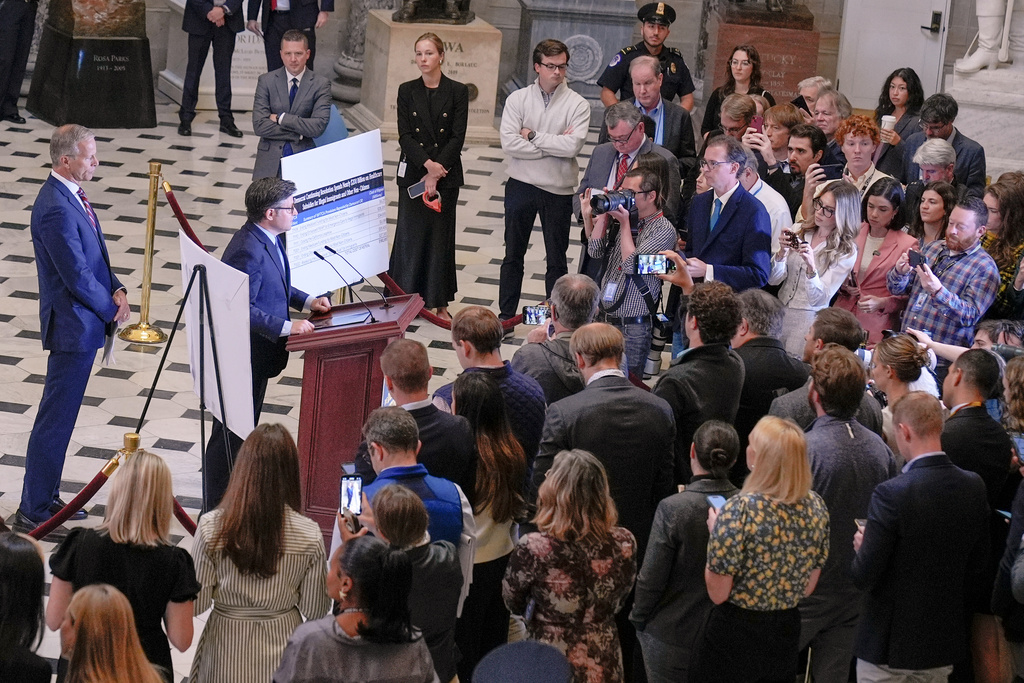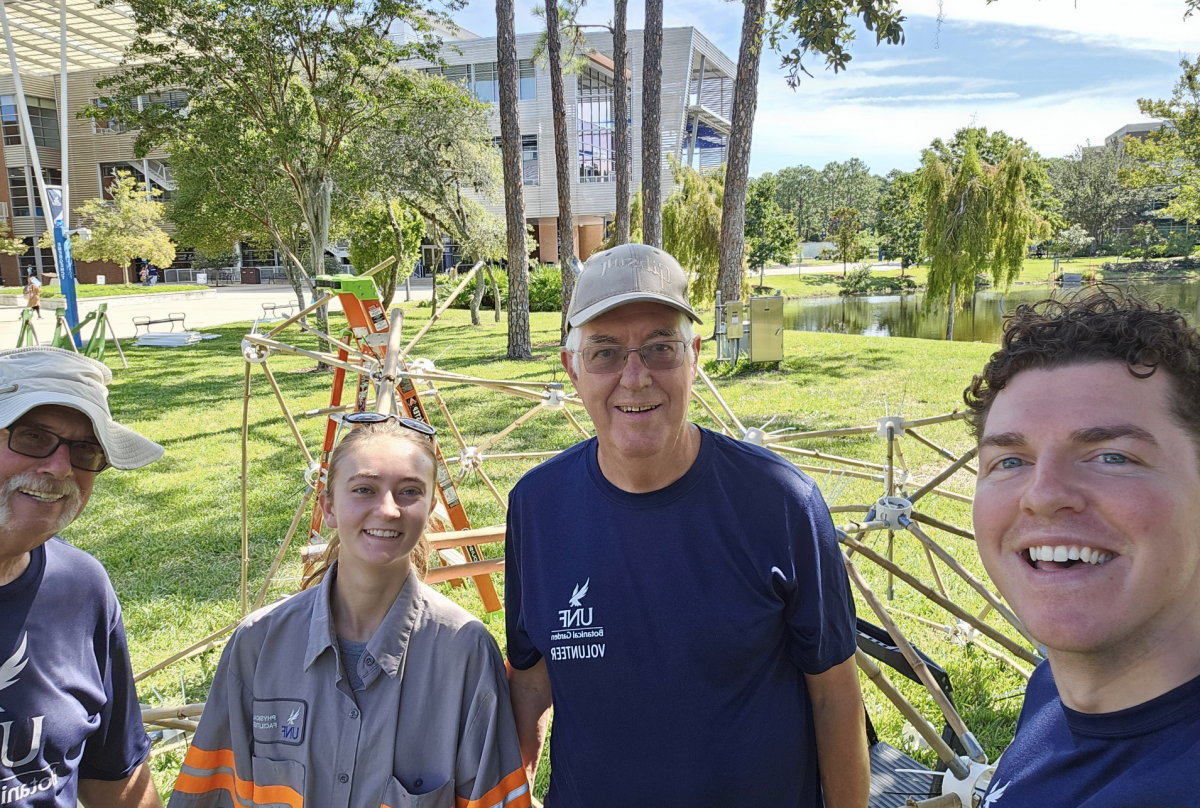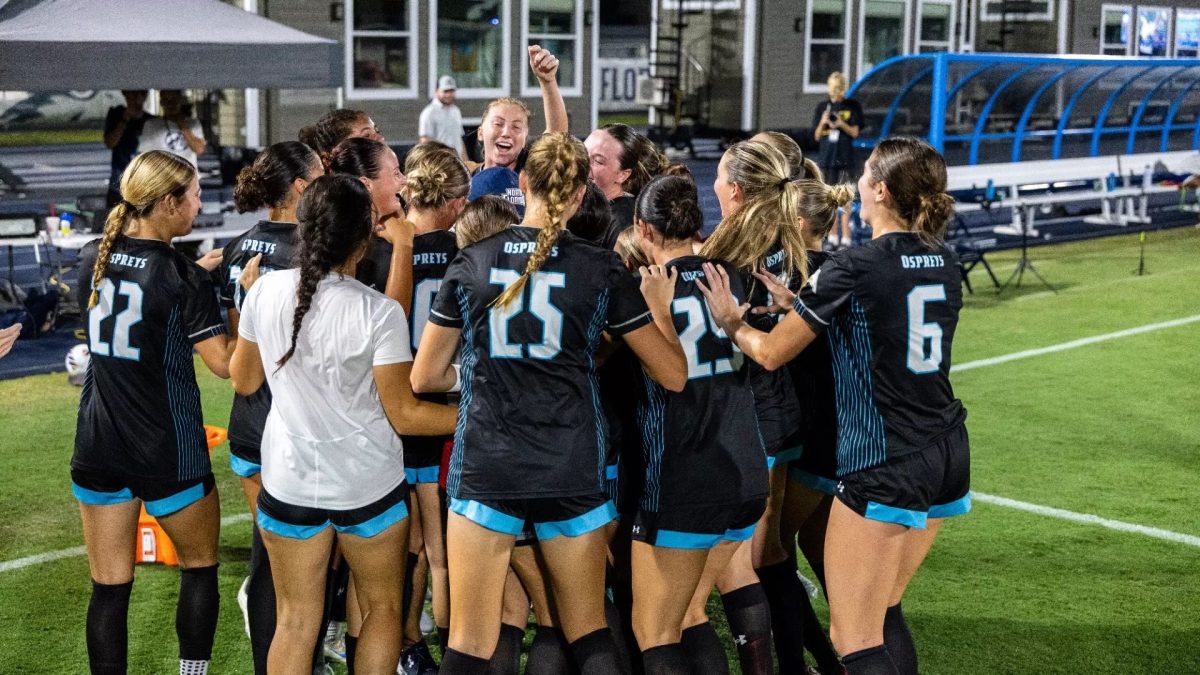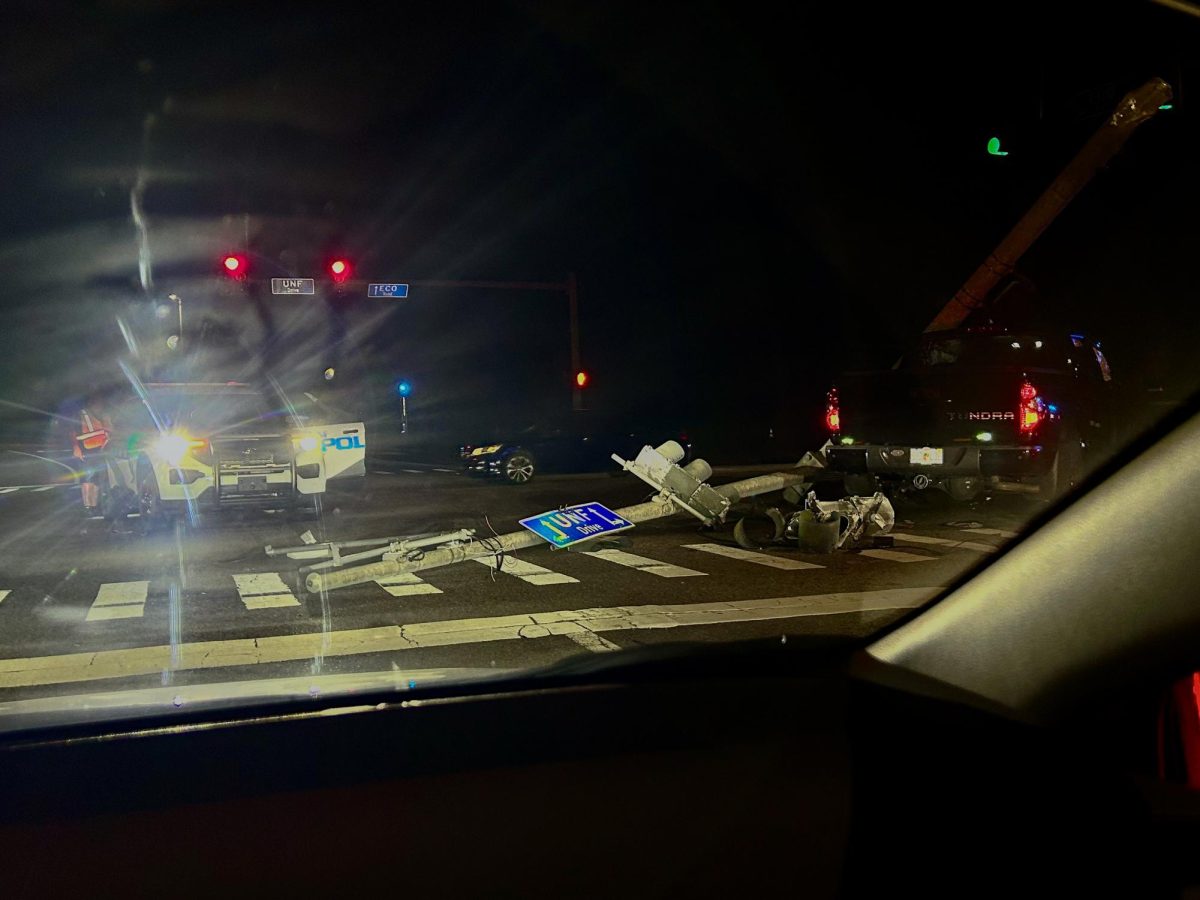The federal government entered a shutdown on Wednesday after Congress failed to pass a budget before the Sept. 30 deadline, leaving agencies without funding and forcing thousands of federal workers into furlough.
A government shutdown occurs when Congress and the president fail to approve a new budget by Oct. 1, the start of the fiscal year. Sean Freeder, a political science professor at the University of North Florida, explained why this shutdown happened, its effects on students and what to expect.
When funding lapses, most federal operations come to a halt, employees go without pay and many government services are suspended until a budget or temporary funding measure is passed, according to Freeder.
Now, six days into the shutdown, there has been no sign of any real progress toward ending the standoff between Republicans and Democrats in Congress, the Associated Press has reported.
Why This Shutdown Happened
Shutdowns in recent years have often stemmed from brinkmanship—one party threatening a shutdown to gain leverage in budget negotiations, according to Freeder.
“More often than not, it’s the Republican Party trying to shut down the budget before it passes, hoping that they can negotiate for more budget cuts,” Freeder said.
In an attempt last week to end the shutdown, Republicans offered a clean continuing resolution to fund the government through Nov. 21 without any major changes, the AP reported. However, Democrats blocked the measure in the Senate due to concerns over Medicaid funding, The New York Times reported.
Beyond policy disputes, Democrats also see the shutdown as an opportunity to signal opposition to Trump, according to Freeder.
“Democrats are very unpopular right now with their own base. Their own base sees them as not willing to stand up to the Trump administration enough,” Freeder said.
Freeder explained that the standoff has worsened due to an unwillingness for either side to negotiate. On Sept. 23, Trump refused to meet with Democrats about the budget because it couldn’t “possibly be productive,” The Washington Post reported.
Effects on Students
In a government shutdown, public schools remain open because they use local funds in addition to federal funds. However, according to the AP, federal research grant applications are now paused due to the shutdown.
For college students, the impact could be immediate when it comes to internships and research funding, Freeder explained.
“Internships, money that had previously been approved to hire people at the federal level for various internships—they might put those internships on a pause,” said Freeder.
Research dollars could also be delayed, though financial aid disbursements are expected to continue. Just after the government shutdown began, UNF announced it had received two major federal grants: one from the National Institute of Health and the other from the Department of Education. It’s unclear how the shutdown will affect the disbursement of these funds.
Besides research grants and academic funding, Freeder said that students should expect delays in communication on federal aid. According to university data, UNF students collectively received over $28 million in federal need-based funds last academic year.
“If students have questions about their ongoing financial aid, expect big delays in that now,” Freeder said. “They’re probably going to have a difficult time reaching workers.”
To navigate this complicated and uncertain issue, Freeder urged students to stay informed with credible sources to “pay attention.”
“Stop getting your news from social media influencers. This is an extraordinarily complicated topic,” Freeder said. “Read [and]… watch news organizations that have low levels of bias, high levels of accuracy. Read across the spectrum, but read from expert sources.”
How long could the shutdown last?
Wednesday’s shutdown is the first shutdown since 2018, during Trump’s first term. Although shutdowns are uncommon, they’ve happened more frequently in recent decades, with 20 occurring since 1976, according to NBC News.
While most last only hours or days, the 2018–2019 shutdown stretched 34 days—the longest in U.S. history. There have been three shutdowns in the past 12 years, according to NBC News.
Freeder didn’t seem confident that this most recent government shutdown would end anytime soon.
“It looks like Democrats are committed to not creating a deal. It looks like Trump is committed to not negotiating with them,” said Freeder. “This is now looking to me like it’s going to be a longer shutdown… possibly even the entirety of October.”
The longer the shutdown lasts, the more severe the consequences, according to Freeder.
“Eventually, you could find yourself in the very unfortunate position of maybe not having the money to send out checks for Social Security or for Medicare,” Freeder explained.
What It Says About U.S. Politics
As Democrats and Republicans remain at an impasse, Freeder said this shutdown reflects deepening political polarization in the U.S.
“Shutdowns regularly either happen or are threatened to happen up to the last minute,” Freeder said. “It says less about, say, the Trump administration and more just about American polarization generally over the past couple decades.”
Trump’s refusal to negotiate and increasingly combative rhetoric against opponents signal an escalation in tactics, which reflects a troubling shift in politics, according to Freeder.
Once Democratic and Republican leaders can sit down and talk at the negotiating table, Freeder said the end to the shutdown could be in sight.
“If that hasn’t happened… I would expect the shutdown to continue,” said Freeder.
“This is stuff that won’t affect people now, this month, this year— but for the rest of our lives,” Freeder said. “The fighting back and forth between the parties… this is all stuff that Americans should generally be concerned about in terms of the state of our democracy and also the state of the United States within the rest of the global context.”
___
For more information or news tips, or if you see an error in this story or have any compliments or concerns, contact editor@unfspinnaker.com.













